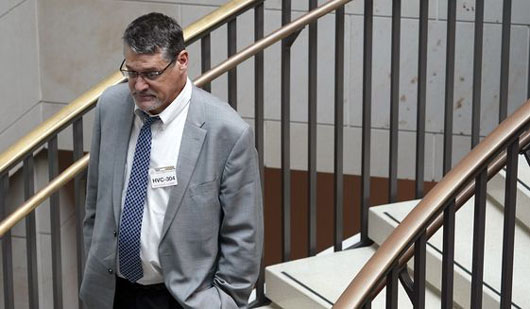by WorldTribune Staff, January 7, 2018
A judge at the U.S. District Court for the District of Columbia on Jan. 5 ruled the House Intelligence Committee can investigate whether the FBI relied on the discredited Trump dossier to launch its probe into alleged collusion between the Trump campaign and Russia.
In rejecting a bid by Fusion GPS to keep its bank records from the House Intelligence Committee, Judge Richard J. Leon called Fusion’s contention that the committee’s probe was not authorized by a formal committee resolution “wishful thinking.”

“[Fusion‘s] insistence that this court require more has no basis in law,” Leon said.
The ruling came on the same day that Rep. Devin Nunes, chairman of the House Intelligence Committee, announced an agreement with the Justice Department in which the DOJ agreed to turn over FBI records on how it used the dossier to investigate the Trump campaign.
The DOJ also promised the committee access to Justice and FBI officials as Republicans look into alleged internal law enforcement biases against President Donald Trump.
Nunes, California Republican, signed a subpoena in October through which he revealed how Democrats funded the dossier. He wants access to an additional 70 Fusion bank transactions involving 10 law firms, at least three journalists and media companies, according to a Jan. 5 report by Rowan Scarborough for The Washington Times.
Fusion GPS co-founder Glenn Simpson argued in court that the firm’s transactions do not relate to the committee’s investigation into Russian interference in the 2016 election. Fusion further said that the First Amendment protects the firm’s client confidentiality.
Judge Leon rejected all of Fusion’s arguments.
The judge said it is already known that two Fusion-connected law firms, the Democratic National Committee’s (DNC’s) Perkins Coie and the New York firm BakerHostetler, engaged in Russia matters.
Perkins Coie paid Fusion with money from the DNC and Hillary Clinton campaign. Fusion then hired ex-British spy Christopher Steele who wrote the dossier in June-December 2016. Steele said he paid his Kremlin sources, according to a former senior intelligence official, but Fusion says he did not.
“This fact alone provides a reasonable basis to believe that Fusion’s transactions with other law firms during the same time frame may reveal similarly relevant information,” the judge said.
He likened the committee to a grand jury which sometimes goes up “blind alleys and into nonproductive enterprises”
On Fusion’s argument that some of the transactions are not Russia-related, the judge said he “lacks the authority to restrict the scope of the committee’s investigation in the manner [Fusion] suggests.”
On the First Amendment argument, the judge said, “Courts have uniformly held that the kind of commercial relationships Fusion seeks to shield from government inquiry here are not protected as associational rights under the First Amendment.”
The judge said the committee is permitted to investigate, “Whether the FBI relied on the dossier as grounds for its counterintelligence investigation into potential coordination between the Trump campaign and the Russian government to influence the 2016 presidential election.”
Subscribe to Geostrategy-Direct __________ Support Free Press Foundation
